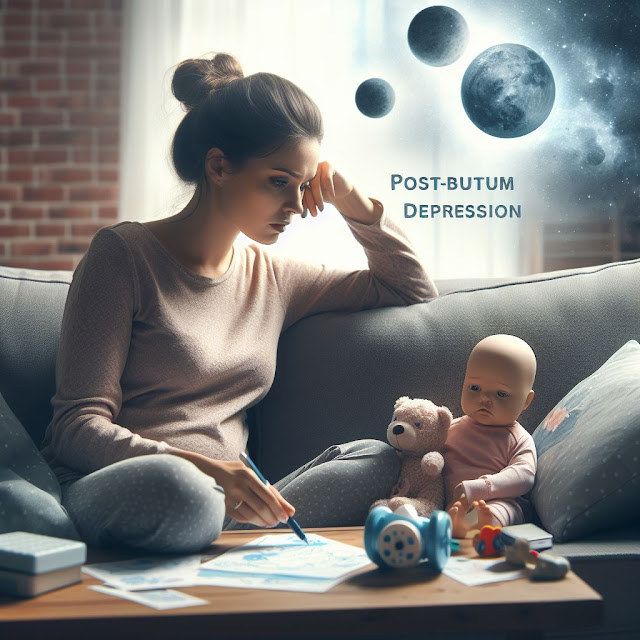Welcoming a new life into the world is a joyous occasion, but for some mothers, the postpartum period can bring unexpected challenges, including postpartum depression (PPD). In this article, we’ll explore strategies to help mothers cope with and overcome postpartum depression.
1. Recognize the Signs: The first step in addressing postpartum depression is recognizing the signs and symptoms. These may include persistent feelings of sadness, anxiety, changes in sleep patterns, and difficulty bonding with the baby. Acknowledging these feelings is a crucial first step towards seeking help.
2. Seek Professional Support: Don’t hesitate to reach out to healthcare professionals, such as your obstetrician, a therapist, or a counselor. They can provide a proper diagnosis and recommend appropriate treatment options, which may include therapy, medication, or a combination of both.
3. Build a Support System: Surround yourself with a strong support system of friends and family. Share your feelings with those you trust and let them provide emotional support. Having a network to lean on can make a significant difference in coping with postpartum depression.
4. Prioritize Self-Care: Taking care of yourself is crucial during the postpartum period. Ensure you get adequate rest, maintain a healthy diet, and engage in activities that bring you joy. Small self-care practices can contribute to an improved sense of well-being.
5. Connect with Other Mothers: Joining support groups or reaching out to other mothers who have experienced postpartum depression can be immensely beneficial. Sharing experiences and advice can create a sense of camaraderie and reduce feelings of isolation.
6. Set Realistic Expectations: Adjusting to motherhood is a significant life change, and it’s important to set realistic expectations for yourself. Don’t feel pressured to meet perceived standards of perfection. Celebrate small victories and progress, and be kind to yourself during this transitional period.
7. Communicate with Your Partner: Maintaining open communication with your partner is crucial. Share your feelings and concerns, and work together to navigate the challenges of parenthood. A supportive partner can be a valuable ally in overcoming postpartum depression.
8. Gradual Return to Routine: Gradually reintegrate routine activities into your daily life. Establishing a manageable routine can provide a sense of structure and stability, contributing to overall mental well-being.
9. Engage in Relaxation Techniques: Incorporate relaxation techniques into your daily routine, such as deep breathing exercises, meditation, or gentle yoga. These practices can help alleviate stress and promote a sense of calm.
10. Monitor Progress and Adjust Treatment: Regularly assess your progress and be open to adjusting your treatment plan if needed. Communicate with your healthcare provider about any changes in your symptoms, ensuring that you receive the most effective support.
Conclusion: Postpartum depression is a common and treatable condition. By seeking support, practicing self-care, and connecting with others, mothers can navigate this challenging period and work towards recovery. Remember, reaching out for help is a sign of strength, and there is a community of support ready to assist you on your journey to healing.
